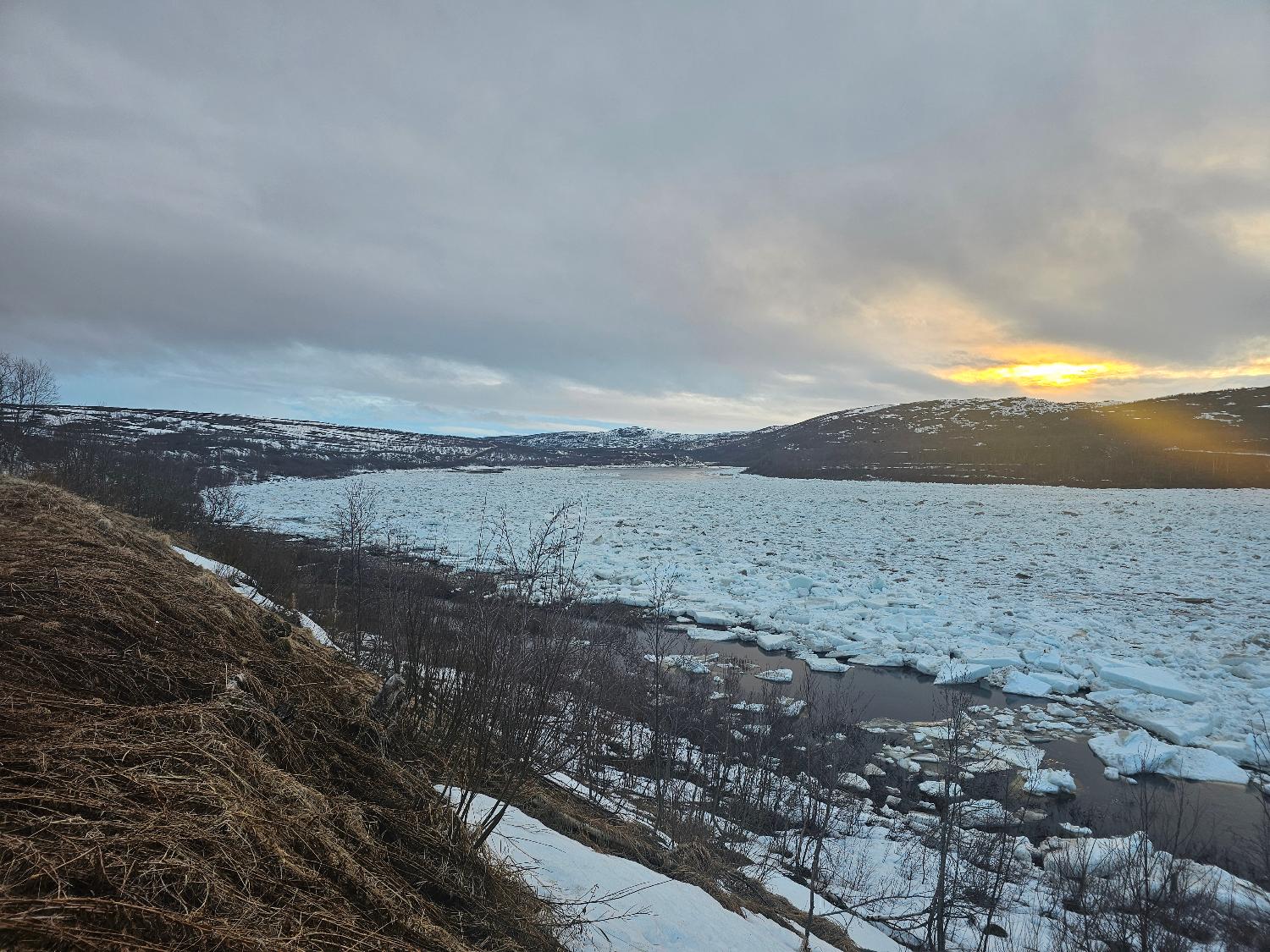Sharing Our Knowledge – Juogadit min máhtu – Kina’mulek tan Kowey kejituek
 River ice flood in Utsjoki, Finland. Photo: Kia Krarup Hansen
River ice flood in Utsjoki, Finland. Photo: Kia Krarup HansenWhat are the impacts of climate change on Indigenous watersheds and river cultures? This project brings together river Sámi and Mi’kmaq from the Deatnu – Tana and Unama’ki regions in Norway and Canada to exchange knowledge about how climate changes watersheds and culture and how Indigenous knowledge and culture can meet the changes in the future. The Mi’kmaq natural law, Netukulimk and the Sami concept of Birgejupmi both point to the cultural importance of the sustainable use of resources being central to having a good livelihood. Through knowledge sharing, or Kina’mulek tan Kowey kejituek (Mi’kmaq phrase for ‘sharing what we know’), or Juogadit min máhtu (Sami phrase for ‘sharing our knowing/skills’), the project organizes meetings and research to discuss concerns about climate change impacts on their ways of life, in both Unama’ki and Sápmi.

This project “Sharing our knowledge. Incorporating Indigenous knowledge systems to build governance for climate resiliency” will co-develop Indigenous-grounded risk assessment and action frameworks to address five key risk themes (water security; critical infrastructure and services; human health; food security; and coastal socio-ecological systems). The project will bring together Sámi from the river Sámi culture along the Deatnu river valley and Mi’kmaq from Unama’ki (First Nations region situated around the Bras d’Or Lakes within Nova Scotia, Canada). Both groups participating in this project lack jurisdictional authority in relation to their lands and resources and are already experiencing some of the most rapid rates of warming due to climate change. The outcomes of this work will be regionally situated tools for Indigenous water system management and governance, with the goal of sharing the co-production model used in this work with other Indigenous regions. The project is funded through the call for proposals "International Joint Initiative for Research in Climate Change Adaptation and Mitigation" from The New Frontiers in Research Fund (NFRF). This is an international collaboration among research funders from Brazil, Canada, Germany, Norway, South Africa, Switzerland, the United Kingdom, and the USA. The target group for the research are vulnerable groups who are most severely affected by climate changes due to their geographical location, social and/or economic situation. The purpose of the initiative is to develop sustainable strategies and solutions in collaboration with the affected groups, which can help these groups maintain their livelihoods, their culture, their homes, and more. Vulnerable communities in low- and middle-income countries and the Arctic are highlighted in the call for proposals. Project partners are Dalhousie University, Canada, Cranfield University, UK, and UiT - the Arctic University of Norway. Indigenous partners are the Unama'ki Institute for Natural Resources in Nova Scotia and DeanuInstituhtta in Deatnu, northern Norway.
Project logo created by the Sámi illustrator Kine Kjær.
Members:
Financial/grant information:
Funded by The New Frontiers in Research Fund (NFRF), Canada and the Research Council of Norway.
Project ID NVA 353592